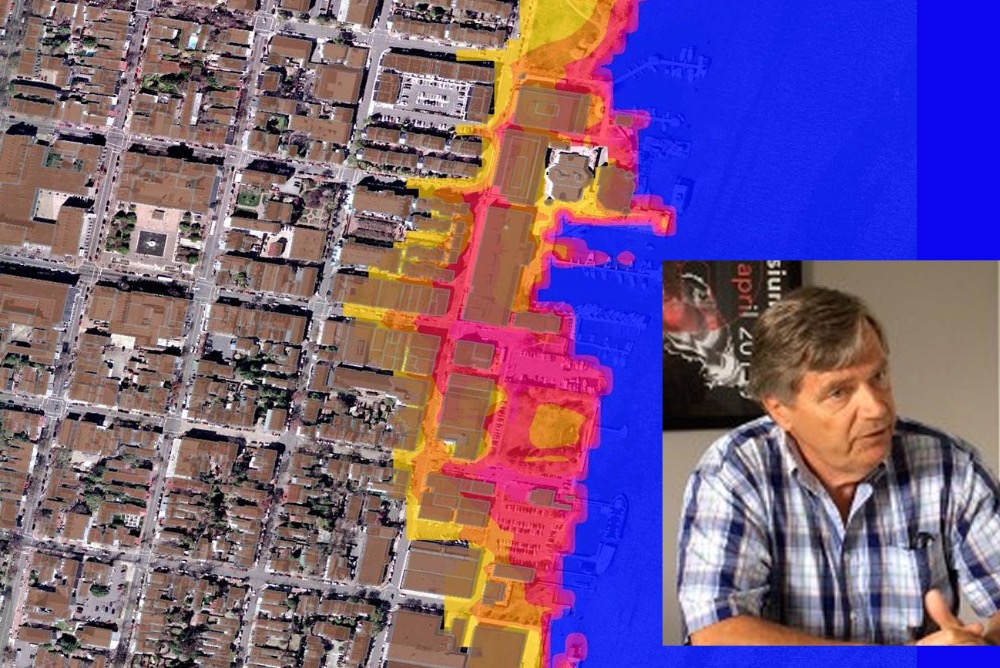W&M Featured Events
[PAST EVENT] Sub-grid and 3-D modeling for better flood management
Location
VIMS - Watermen's Hall, McHugh Auditorium1375 Greate Road
Gloucester Point, VA 23062Map this location
Access & Features
- Open to the public

Summary
Dr. Guus Stelling, emeritus professor at Delft University in the Netherlands, will describe how sub-grid modeling and 3-D simulation techniques promise more effective flood management in urban areas?where buildings and underground structures such as sewage pipes and subways strongly affect water flow. He will also discuss the use of these techniques in rural areas, where the infiltration capacity of soil plays a key role. The talk is sponsored by the Center for Recurrent Flooding Resiliency of the Commonwealth of Virginia.
The sub-grid method allows the use of very detailed elevation data without the need for flow variables at every pixel, greatly decreasing computing time. This is important because advances in remote-sensing have made elevation data available in such high resolution that in many localities the number of data points exceeds the ability of today?s computers to produce a forecast in a timely manner?with a flooding simulation taking days, weeks, or even months. Sub-grid modeling reduces computer run-time to hours or minutes?quickly enough to allow a timely warning.
Simulation of surface flows due to storm surges or other causes requires understanding both overland flows?which are dominated by friction?and channelized, rapidly varied flows?which are dominated by conservation laws. Dr. Stelling will describe the additions the sub-grid method requires to generate accurate results for both flow types. He will also show how modelers handle interactions between surface water and groundwater. These interactions include infiltration and exfiltration or seepage.
Biography
Dr. Stelling brings to the presentation more than 40 years of professional experience. He devoted the first half of his career to practical problems and applications, including a leadership role with the executive body of the Dutch Ministry of Infrastructure and the Environment, where his emphasis was on the development of computational software systems for the simulation of free surface flows. These saw first use in the Dutch Delta Works?the Netherland's multibillion dollar flood-protection project. Between 1988 and 2002, Dr. Stelling headed a group of mathematicians and engineers within Delft Hydraulics, developing modeling software for hydrodynamics and transport processes, urban and rural water management, and flooding simulations. These software systems are still in use in countries worldwide. From 2002 until 2013, Dr. Stelling was a professor of fluid mechanics in the Civil Engineering and Geosciences faculty of the Technical University in Delft. He retired in July 2013 and now runs his own company, Stelling Hydraulics.
Contact
For details or a copy of the technical abstract, contact [[v|wang,Professor Harry Wang,]] Virginia institute of Marine Science.
